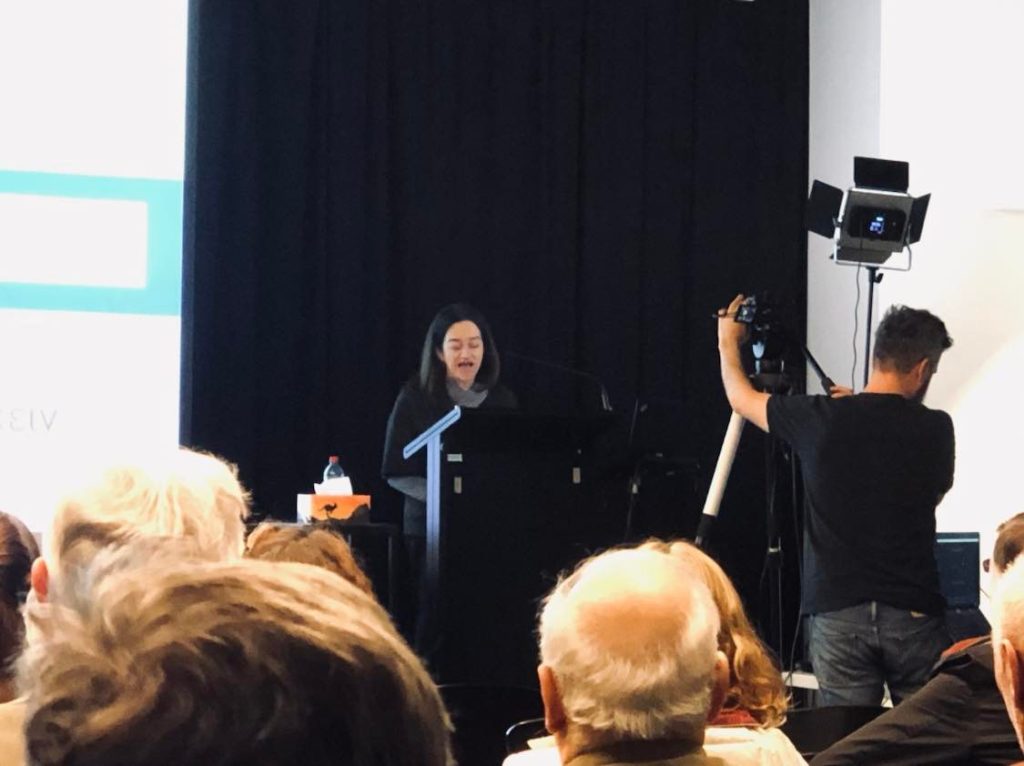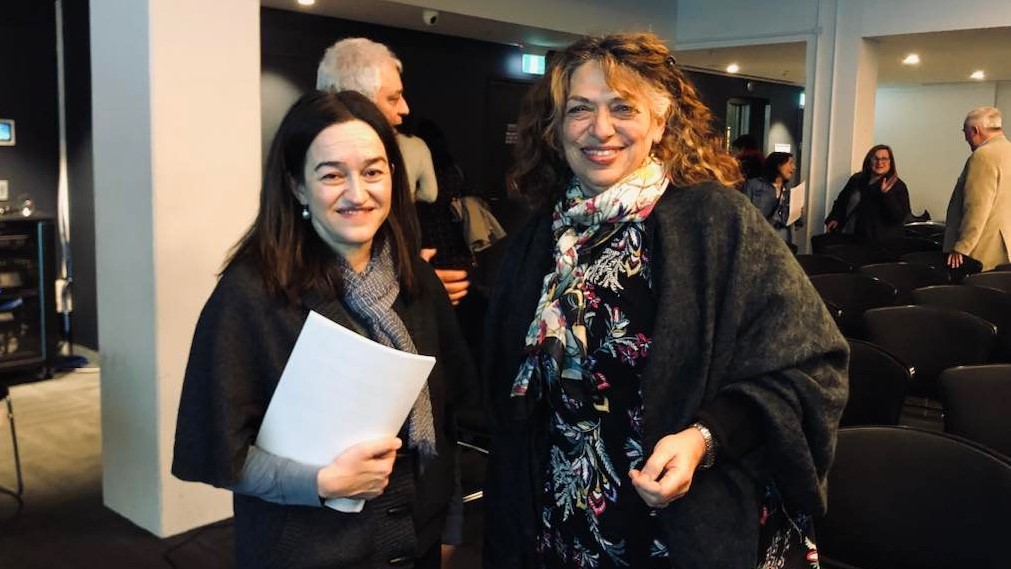By Mary Sinanidis.
Spoken Greek in Australia and Aboriginal languages are not directly connected, but they are both victims to Australia’s ‘linguicide.’
With 92 percent of Indigenous languages disappearing, there seems little hope for heritage languages like Greek. But it isn’t too late said Dr Stavroula Nikoloudis, coordinator of the Greek Studies program at La Trobe University, and Linguistics Professor James Walker.
Their lecture at Melbourne’s Greek Centre, titled “Greek in Melbourne: language, identity and belonging,” showcased findings of an online survey of 252 people conducted in 2020-2021 and ongoing interviews underway to explore views about identity and language in the Greek diaspora over generations. Trends show a rise in cultural hybridity as generations are swallowed by mainstream Australian society.

Along with assimilation comes language loss, but not all news is bad.
“Language can be revived,” Professor Walker told The Greek Herald.
He points to the resuscitated Kaurna language in South Australia, with conversations now being held in the once-forgotten tongue. We can learn from Indigenous groups.
“In New Zealand, they have ‘language nests’ offering opportunities for kids to chat with elders in the Maori language,” he said, pointing to his own example of a ‘language nest’ created with his 30-year-old Greek Australian real-estate agent.
“I just started speaking Greek with him and now whenever we’re on the phone he says a few words, though initially he said he didn’t speak the language. He obviously knows more than he lets on but doesn’t see the value in speaking.”

The survey showed informal learning remains as strong today as in the heyday of Greek migration. Physiotherapist Mary Rerakis shared how her son had to speak Greek with Cretan musicians following an infatuation with Greek music.
Experts recommend language immersion, with La Trobe collaborating with PRONIA, 3ZZZ and other Greek groups.
“We have started to establish student internships as an opportunity to help our students realise the potential of their language and culture outside the classroom,” Dr Nikoloudis said.

At a formal level, Dr Nikoloudis pointed to 10,000 students learning the Greek language in Victoria, served by 40 providers and 400 teachers. La Trobe University has been left as the sole provider offering Greek at a tertiary level.
“I should note that our student cohort is quite diverse. We have students of Greek and non-Greek backgrounds and of all ages, and we are reaping the rewards of an intercultural and intergenerational learning environment as a result,” she said, adding that third generation Greeks are taking up formal study to reconnect with their heritage and better communicate with older relatives, primarily their grandparents.

Every so often the program is threatened with closure.
“Unfortunately, long gone are the so-called golden years of Greek tertiary education,” Dr Nikoloudis lamented, pointing to “much more progressive language policies in Europe,” whereas in Australia the “multilingual potential” remains unharnessed.
Where governments fail to listen, activists such as the late George Zangalis step in. His family funded a scholarship in his name to support top-performing Greek language students.
“We needed to contribute because of the mark he left in multicultural Australia,” Vasso Zangalis, his daughter, told The Greek Herald, determined to carry on her father’s legacy.
Participants are still sought for interviews in La Trobe’s study. Contact s.nikoloudis@latrobe.edu.au

